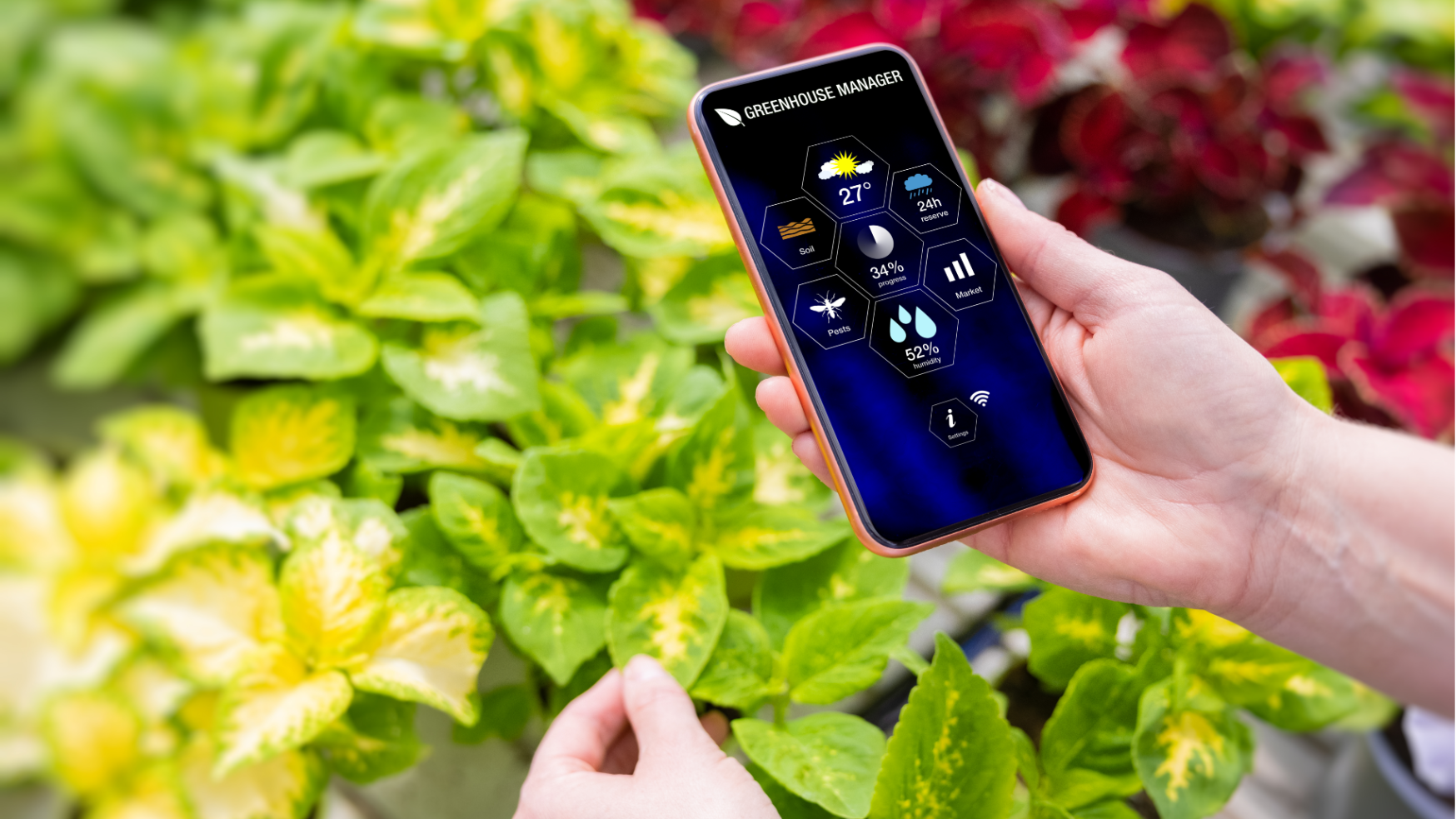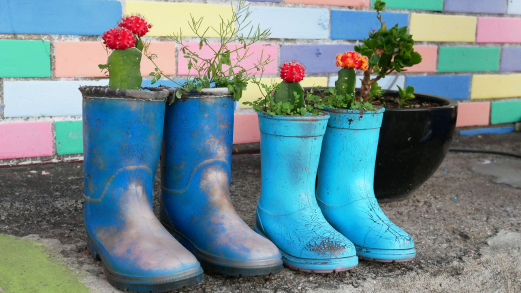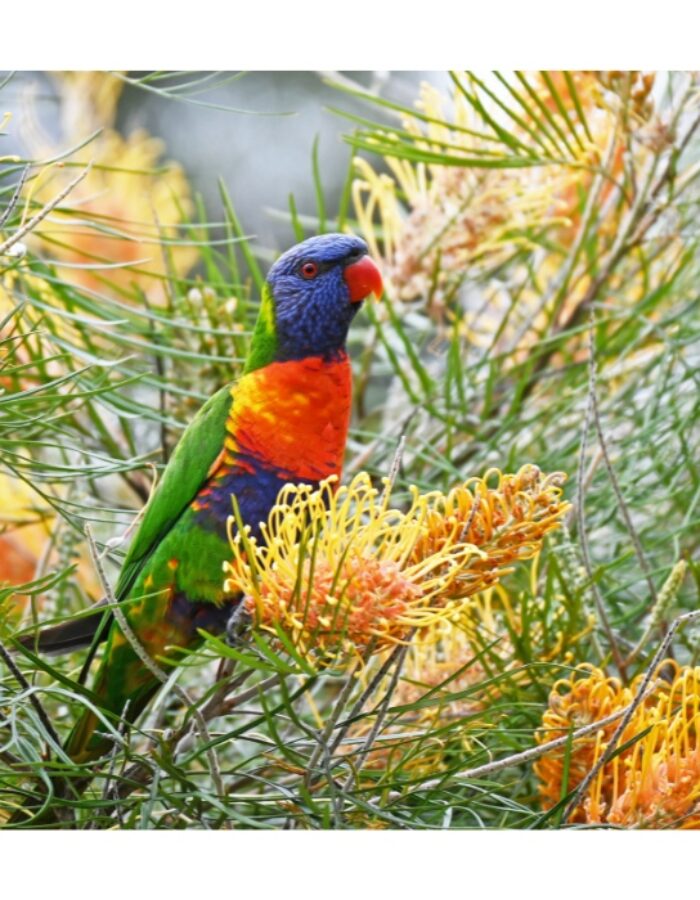Location: Rosanna, Victoria
This garden won the Banyule City Council ‘Best Residential Sustainable Garden’ award for 2003-2004. Sue runs a gardening maintenance and plant-scaping business. She specialises in advising residents of indigenous plant choices that suit the preferred garden style while enhancing the habitat value of the garden. Plants are chosen for the site and watering is not required. Sue also can supply and plant the choices for sustainable and beautiful gardens.
 |
The nature strip The indigenous nature strip is fast becoming the Sustainable Garden flag. |
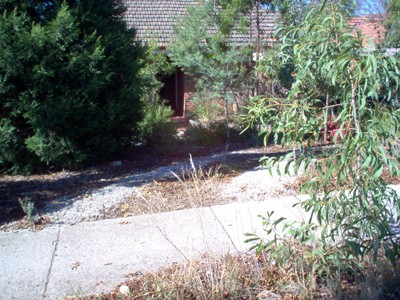 |
Recycled crushed concrete Recycled crushed concrete can be used to great effect to create an informal path. |
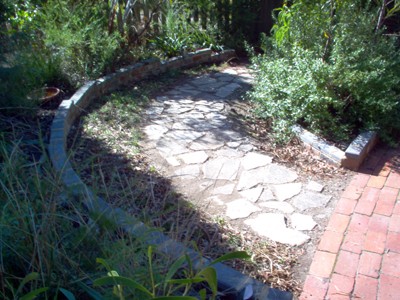 |
Recycled concrete pieces Someone else’s broken up driveway has become my path. |
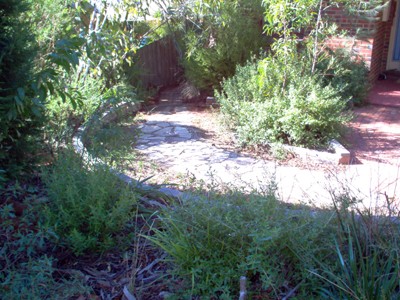 |
Messy Ecosystems, Orderly Frames This is a theme I have borrowed which allows room for both nature and order. Though this area is dry, we now have a brown froglet visiting somewhere in the mess. |
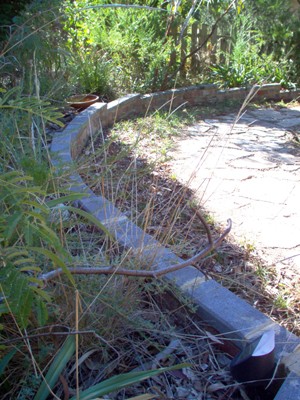 |
Messy Ecosystems, Orderly Frames (Part 2) |
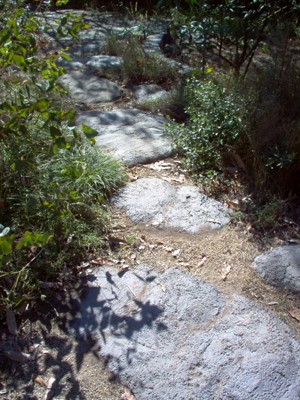 |
Stepping Stones “Rock” stepping stones are made from recycled crushed concrete and cement (about 5:1) – with some black pigment added to the top layer. |
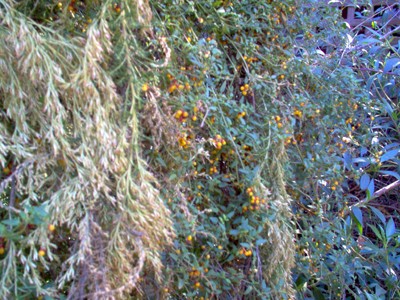 |
Einadia nutans The berries are delicious but small. |
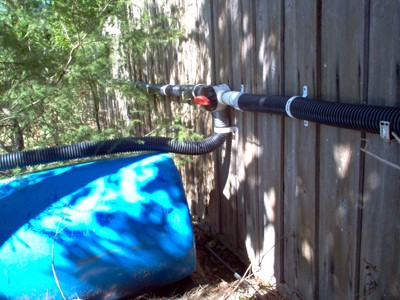 |
Greywater The pipe comes from the shower / bath outlet, through a diverter to either the drum or further down the garden to the fruit trees. |
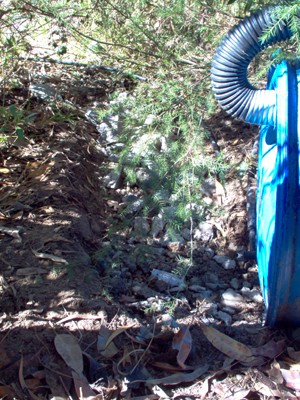 |
Excess Greywater If the drum is full, and I have forgotten to empty or divert, the excess water simply escapes out the inlet hole. It flows into the “river” styled seepage area – again using recycled concrete “river stones”. |
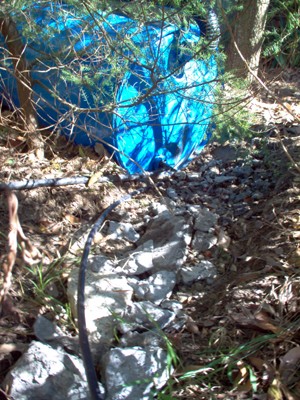 |
Greywater Use The drum is emptied via one of two hoses which lead to different areas. I move the end of the hose to soak the required area then leave it to empty the drum. The indigenous plants in the garden don’t need watering, but the system allows me to plant new plants, even in summer, and water them once or twice to get them started. I have also had some fun creating ephemeral wetlands with beautiful reeds – because I can! I will be working on an indigenous lawn soon. |
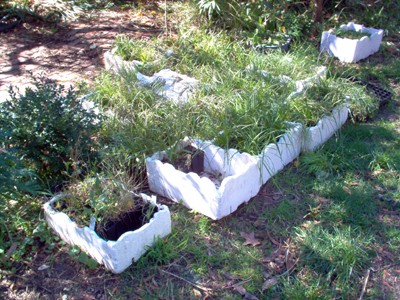 |
Carex iynx Carex iynx ready for supply to retail nurseries – for the “normal”(!) gardener. |
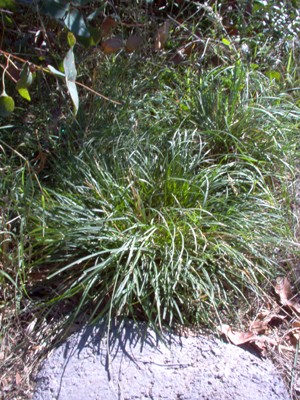 |
Carex incommitata Like mondo grass… only smarter! |
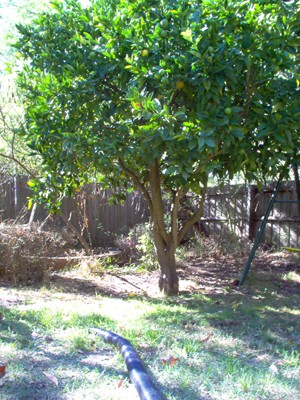 |
Greywater Use The orange tree enjoys the greywater from our showers. |
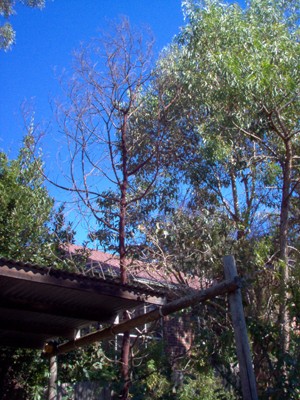 |
Don’t remove those dead trees! Dead trees are still art. Apart from looking great, they attract birds who like the view. |
 |
The Greywater Source The shower / bath outlet cut and tape-on wide hose. |
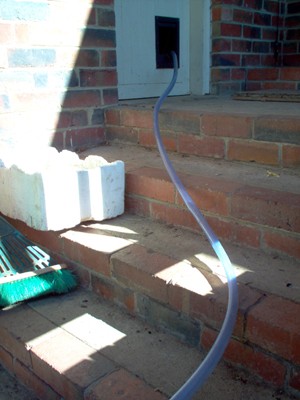 |
The Greywater Source Water from the washing machine is used too (although a wider hose would be better) |
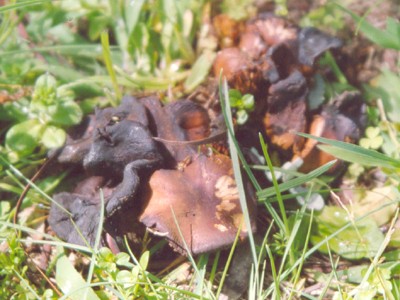 |
Fungus Nature’s own recycler. |
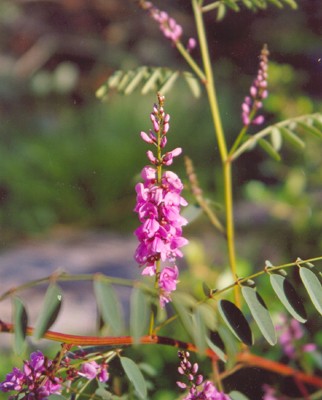 |
Indigofera australis |
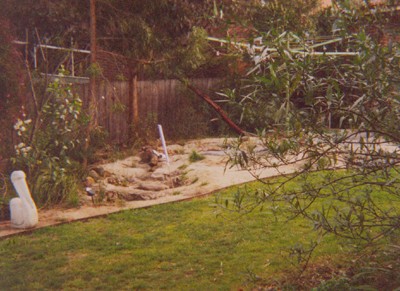 |
Roof Runoff All water from the roof goes to this area – it has become our own creek and wetland. |
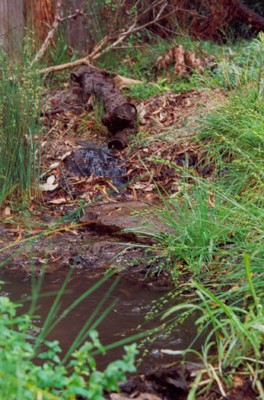 |
Our Own Creek The same area as the photo above, but 18 months later. This storm water catchment area draws me out into the garden to watch the creek flowing – it only happens when it’s raining though!. |
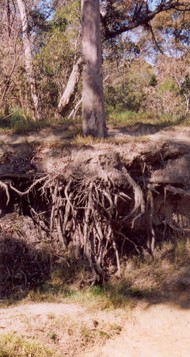 |
Creek Erosion Erosion of the local creek due to the flushing from roofs of local houses (not ours) |
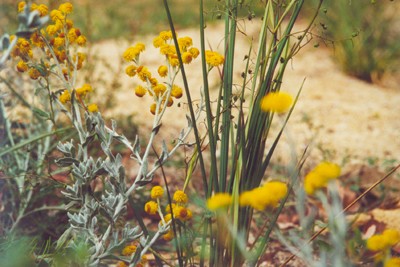 |
Dianella revoluta with common everlasting |
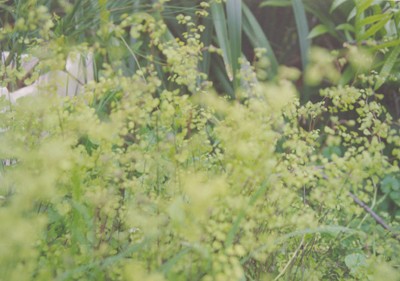 |
Maidenhair fern |
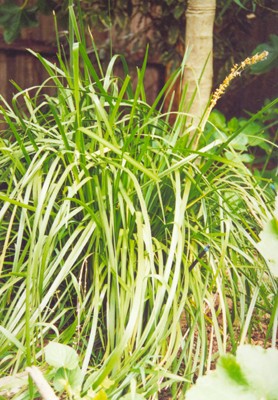 |
Lomandra Longifolia becomes very elegant in the shade |
 |
Carex iynx, mass planted in dry shade |
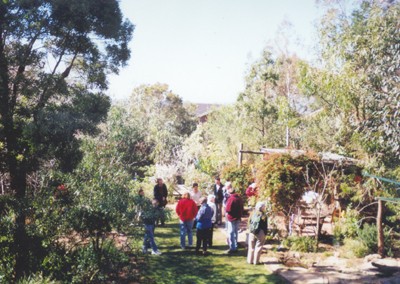 |
Local Council Open Garden Day |
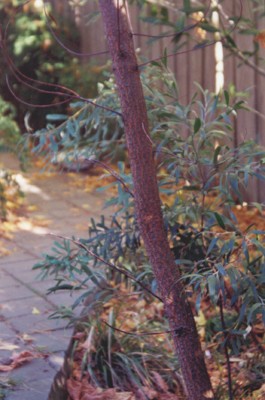 |
Acacia implexa Beautiful trunk of light wood, a great tree for small gardens. |
 |
Viminaria juncea |
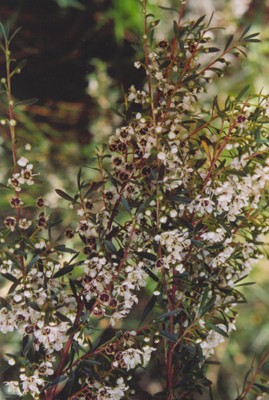 |
Kunzea ericoides |
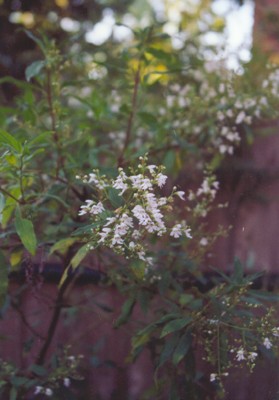 |
Prostanthera lasianthos |
Related Articles:
Citizen Science: A Pathway to Gardening Success and Biodiversity Conservation
In recent years, the realm of science has experienced a remarkable transformation, one that invites people from all walks of life to participate…
A Sustainable Gardener’s Guide to Thrifty Gardening
Creating an eco-friendly and cost-effective garden involves more than just nurturing plants; it's about adopting a sustainable approach that…


